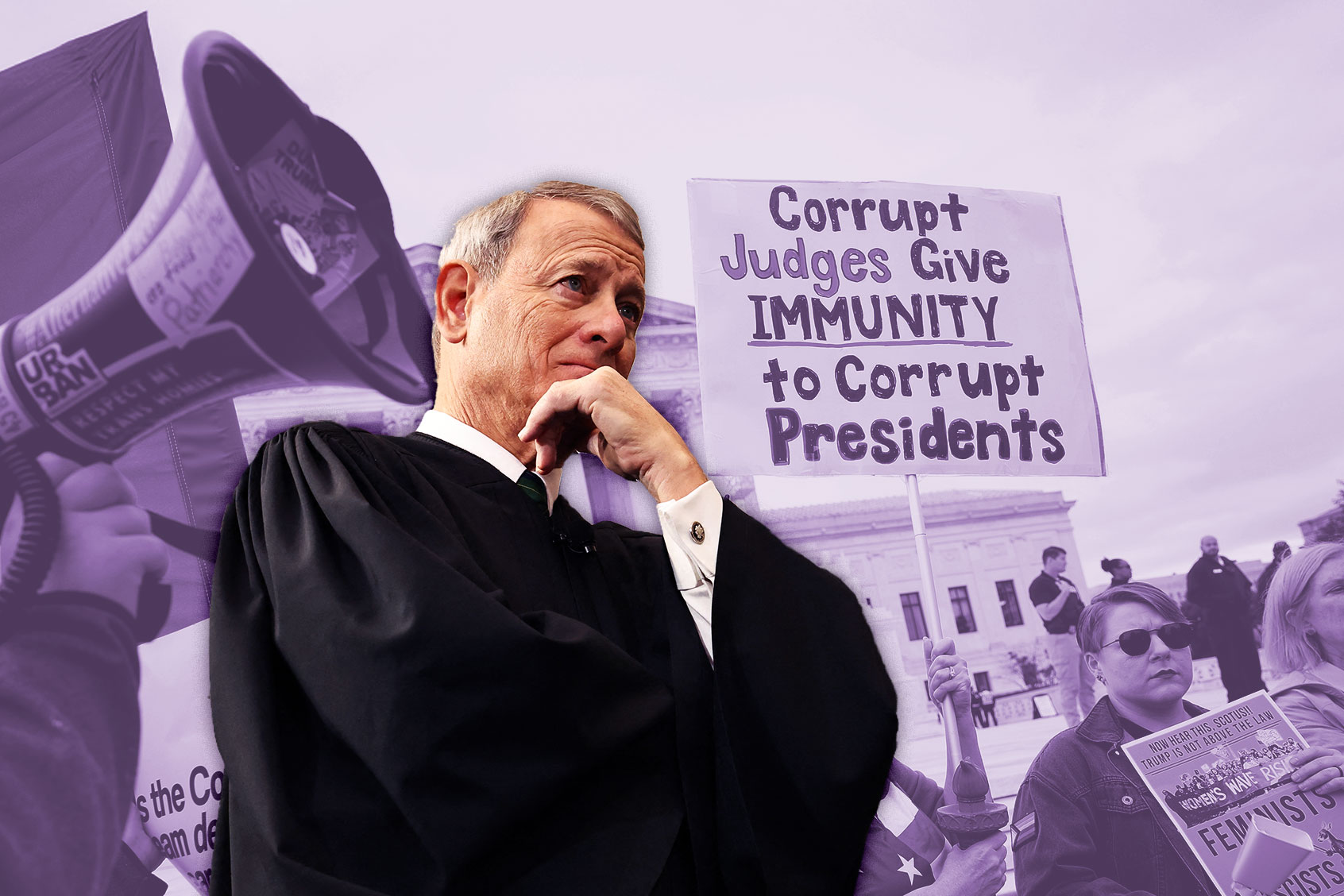Now Reading: How the Supreme Court enabled Donald Trump’s mile high bribe
-
01
How the Supreme Court enabled Donald Trump’s mile high bribe
How the Supreme Court enabled Donald Trump’s mile high bribe

OPINION
Corruption Begins at the Top of the Judiciary Branch
Published on May 19, 2025 at 6:35 AM (EDT)
Justice John Roberts and a demonstration outside the Supreme Court building (Photo illustration by Salon/Getty Images)
The news is full of stories about Donald Trump’s new luxury jet given to him by Qatar. The act of a foreign government presenting a plane to the president, especially for him to keep post-presidency, raised eyebrows. This is just one example of Trump and his associates trying to profit from the presidency at every opportunity, whether it’s promoting cryptocurrencies while easing regulations on them, conducting official business at Trump-owned properties, and more. The Supreme Court, by allowing such practices, has enabled the government to function at its lowest ethical standards.
The gifting of a luxury jet by a foreign government raises red flags under the foreign emoluments clause of the Constitution. According to Article I, section 9, no government official can accept gifts or emoluments from foreign entities without Congressional approval. In Trump’s case, accepting a luxury jet from Qatar without Congress’ consent seems to violate this clause.
Unfortunately, the US Supreme Court eliminated existing judicial precedents regarding the foreign emoluments clause, particularly in cases involving Trump. Throughout his presidency, Trump maintained financial interests in various Trump properties, where foreign officials would stay and spend money, benefiting Trump financially. Lawsuits were filed against these practices, arguing that they violated the foreign emoluments clause. Despite some initial favorable rulings against Trump, the Supreme Court dismissed the cases as moot after Biden’s election, effectively erasing any legal standing for suing a president over such violations.
The Court’s involvement in Trump’s questionable dealings goes beyond the emoluments clause. It has repeatedly downplayed the significance of giving money or gifts to political figures, normalizing influence and access schemes. This stance contrasts with the Court’s strict interpretation of corruption as only involving explicit quid pro quo exchanges.
The Court’s lenient approach to influence-and-access schemes has influenced public perception of corruption, as seen in the discourse surrounding Trump’s acceptance of the Qatari jet. The Court’s rulings, like Citizens United v. Federal Election Commission, have paved the way for money to play a significant role in politics, arguing that large financial contributions do not necessarily lead to corruption.
In recent cases like United States v. Snyder, the Court has even allowed officials to accept gifts or gratuities without a clear quid pro quo agreement, further blurring the lines of acceptable conduct. This leniency extends to justices themselves, as some have received luxurious gifts without facing allegations of corruption.
The Supreme Court’s lax stance on corruption has emboldened Trump and his allies to engage in questionable practices, leading to the normalization of unethical behavior in government. The phrase “a fish rots from the head” rings true in this context, highlighting the role of the judiciary in setting standards for ethical conduct in public office.






